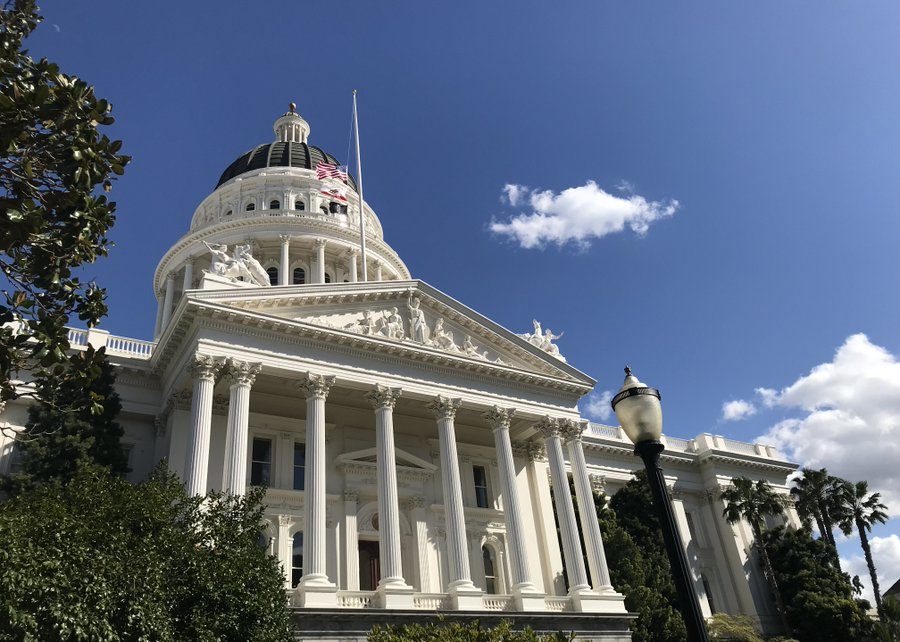
California State Capital. (Photo: Kevin Sanders for California Globe)
Managing a Successful Government Affairs Program and Contract Lobbyists
The lobbying program begins with understanding and articulating the organization’s advocacy goal
By Chris Micheli, October 30, 2019 5:45 am
Managing a successful government affairs program requires managing multiple component parts of an organization focused on advocating the interests of a company, labor union, or trade association. It is similar to being the campaign manager of a political campaign or the coach of a football team.
In other words, it requires overseeing and coordinating all aspects of the government relations effort for the organization. For example, it may require that you manage one or more in-house lobbyists, as well as analysts and others who support the direct lobbying activities of the organization.
It may also require managing contract lobbyists, as well as those who support the advocacy efforts such as those engaged in grassroots support, public affairs or public relations, and even campaign expenditures, such as through a political action committee. These contracted workers must be hired for their expertise and level of service, as well as to fulfill the needs of the lobbying efforts.
Determining how to deploy in-house and contract lobbyists is always a critical role for the government affairs program administrator. Understanding the strengths and weaknesses of those on your lobbying team is required because that will be key to how these individuals should be utilized.
In determining which lobbyists to use, pose some of these questions: What policy expertise do they have? Which political connections do they maintain? What skills are needed? What type of personality is required to deal with decision-makers or opponents?
Overseeing the grassroots and media teams is also a critical role because of the need to understand how the public relations and grassroots coordinators are properly working to support the lobbying efforts. These indirect lobbying components can help or hurt the direct lobbying work if not done properly.
In addition, there must be coordination regarding the right messaging and when, how and by whom that messaging is delivered to elected and appointed officials and their staff. A poor messenger can doom a positive message; a negative message can be better received by a strong messenger. The governmental relations professional will know how to best deliver the right message at the right time.
Another vital component of a successful governmental relations program is effectively managing a PAC, which requires ongoing solicitation efforts to ensure a sound budget for the PAC, as well as determining which elected officials to support, how much to contribute to them, and when to make the contributions.
Of course, handling the calls and requests for campaign contributions is yet another role of the person who oversees the PAC. Some PAC administrators works with a committee to make decisions, such as board members, while others may run the PAC operations with less formal input. Nonetheless, it is important that the contributions strategy comport with the overall advocacy efforts.
The lobbying program begins with understanding and articulating the organization’s advocacy goal and how you plan to achieve that goal. In other words, what is your objective? What is your strategy for achieving that objective? And what tactics will you use to achieve that objective?
In doing so, the government affairs professional will have to decide what tools are at his or her disposal, such as the use of in-house lobbyists and contract lobbyists, whether there is a budget for a public affairs firm or a grassroots firm, and the role of the media in the lobbying campaign.
Finally, an effective government relations program often involves working with or running a lobbying coalition. Is your organization the best one to coordinate efforts by the coalition? If not, you will need to find an appropriate group or individual to manage the coalition’s lobbying efforts. Such a coalition could involve other organizations, other lobbyists, and even other public relations or media personnel.
Managing a government affairs program requires good management skills, policy and political knowledge, and a desire to achieve the goal of the organization or coalition. And it requires an ability juggle multiple duties and issues to ensure that the collective efforts are successful.
In addition, for those government relations professionals who work with contract lobbyists, it is important that they effectively manage these valuable resources. Companies, associations, labor unions, and other groups may require the use of one or more lobbyists to be employed on a contract basis. These are “contract lobbyists” and they can play an important role in a successful government relations program.
There are numerous advantages to hiring a contract lobbyist, including having a leading professional working on your behalf, utilizing his or her expertise in strategy and advocacy, benefitting from extensive contacts in state government, and providing additional help in your lobbying efforts. Chief among the disadvantages can be the cost of a contract lobbyist.
As one would expect, there are several considerations in hiring contract lobbyists. The most fundamental one is whether the work of a contractor is needed. Just like in state legislatures across the country, in California, there are thousands of bills introduced, and hundreds acted upon, each year, as well as over 200 state departments and agencies that are constantly taking regulatory actions.
As a result, companies and associations that keep tabs on all these legislative and regulatory activities can easily be overwhelmed with this seemingly daunting and time-consuming task. As such, in many instances, these organizations need a contract lobbyist to assist with the monitoring and lobbying that is needed.
There are other benefits with a contract lobbyist. For example, a professional advocate will understand the inner-workings of the state’s legislative and regulatory processes, have an extensive network of legislative and regulatory contacts, and be able to assist with coalition building in ways that may be cumbersome and time-consuming.
As such, when hiring a contract lobbyist, one will want to review such an individual’s experience, political background, contacts, reputation, and record of success.
Again, in determining whether one needs to hire a contract lobbyist, the most crucial factor is understanding whether your organization has a specific need for the upcoming legislative session. Once that is decided upon, then you will need to find the right lobbyist to fill that need.
In other words, once you determine that a lobbyist needs to be hired, then you need to find the person who is best suited to handle the work of your organization, and then to set expectations for the lobbyist’s deliverables and outcomes. In making this determination, it is important to define the scope of work and how the contract lobbyist will work for your organization.
Once you have determined the need for a lobbyist, that will help define his or her scope of work for your organization. You may want to proceed by word-of-mount, relying upon recommendations from colleagues or event elected officials and their staff. Another avenue is to issue a request for proposals from interested lobbyists.
Once an available lobbyist is found, it is important that you get to know the lobbyist’s clientele and ask for references for their prior representation. You will certainly want to conduct an interview or two with the prospective lobbyist. And be sure to specify the terms of engagement, making clear the scope of work desired and the methods that will be used to lobby and communicate on behalf of your organization.
There can be great benefit to utilizing one or more contract lobbyists to help achieve an organization’s legislative or regulatory goals. In that regard, make sure that both parties are comfortable with working with each other and that there are clear guidelines for how both parties will interact.
- Remote Marriage Licenses in California - July 27, 2025
- Legislative Policy on Bay Area Pilotage - July 26, 2025
- Small Craft Harbors and Waterways in California - July 25, 2025








One thought on “Managing a Successful Government Affairs Program and Contract Lobbyists”